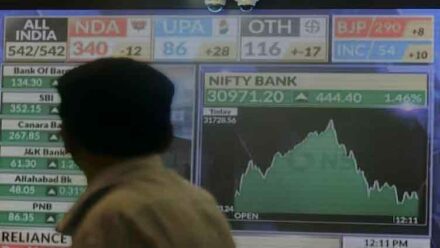Political changes in South Africa, Mexico, and India are creating notable effects on worldwide financial markets. Investors are reacting to a series of crucial events that have the potential to alter economic policies and investment conditions in these important emerging markets.
In South Africa, the African National Congress (ANC) is undergoing a highly scrutinized leadership selection process. The outcomes of these internal elections are expected to have far-reaching implications for the country’s economic policies and governance. Amidst economic challenges and public dissatisfaction, the ANC’s ability to choose effective leaders is crucial. Market analysts are closely monitoring the situation, with the Johannesburg Stock Exchange (JSE) experiencing heightened volatility as investors react to the uncertainty.
“South Africa’s political stability is essential for economic confidence,” said Peter Attard Montalto, an economist at Intellidex. “The ANC’s leadership choices will signal the future direction of policy and reforms, which are vital for addressing the country’s economic issues.”
Meanwhile, in Mexico, President Andrés Manuel López Obrador (AMLO) has announced a major cabinet reshuffle, aimed at reinforcing his administration’s commitment to combating corruption and implementing economic reforms. The reshuffle includes key positions in the finance and energy sectors, areas critical to Mexico’s economic stability and growth. The Mexican peso has fluctuated in response to the news, reflecting investor uncertainty about the new appointees’ ability to manage the country’s economic challenges.
“The cabinet changes are a clear indication of AMLO’s intention to push forward with his agenda,” said Gabriela Siller, director of economic analysis at Banco BASE. “Investors are cautiously optimistic, but the new officials will need to demonstrate their capacity to deliver on key reforms.”
In India, Prime Minister Narendra Modi’s government is facing significant political pressure following a series of state elections that saw the ruling Bharatiya Janata Party (BJP) lose ground. The political setback has raised concerns about the government’s ability to implement its economic agenda, including crucial reforms in the agricultural and labor sectors. The Indian rupee has experienced increased volatility, and stock markets have reacted to the potential for a slowdown in reform momentum.
“Modi’s administration is at a critical juncture,” said Radhika Rao, an economist at DBS Bank. “The recent electoral results could impact the pace and scope of economic reforms, which are vital for sustaining India’s growth trajectory.”
The combined impact of these political developments in South Africa, Mexico, and India underscores the interconnectedness of global markets and the sensitivity of investor sentiment to political stability and policy direction in major emerging economies. As these countries navigate their respective political landscapes, the outcomes will be closely watched by investors worldwide, with potential implications for global trade, investment flows, and economic growth.
“Emerging markets play a pivotal role in the global economy,” noted Mark Mobius, a veteran emerging markets investor. “Political developments in these regions can significantly influence market dynamics and investor confidence.”
In the coming weeks, market participants will be paying close attention to further developments in these countries, assessing the implications for economic policies and stability. The ability of South Africa, Mexico, and India to manage their political transitions and implement effective economic strategies will be crucial in shaping their future trajectories and maintaining investor confidence.
